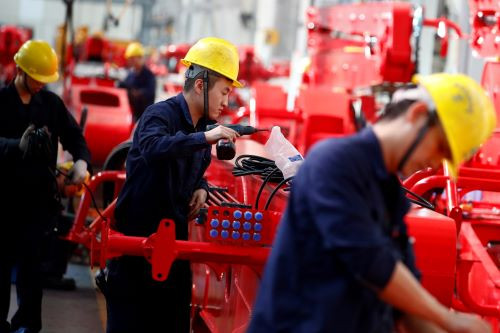China has been showing signs of economic recovery but there remains uncertainty as to its growth in the coming months. Reports claimed that China has not reached its rock bottom economy-wise and that growth may be unachievable for the rest of 2020 that could put millions of jobs at risk.
According to a report by Financial Times, the country's economy would be performing well by the end of June but China's President Xi Jinping may face unprecedented economic and political challenging including double-digit unemployment rates. It could also face its first official economic recession since 1976.
The chief economist with Enodo Economics in London Diana Choyleva claimed that the real unemployment rate in China may grow higher to 10 percent by the end of 2020. She claimed that the second quarter has manifested economic indicators that show declining market activity in production due to supply chain disruptions. She also stated that demand from the rest of the world would continue to decline which could lead to more losses of jobs.
Last Tuesday, markets gained confidence after the release of the official purchasing manager's index of the National Bureau of Statistics. The report showed that since February, more manufacturers have experienced greater expansions in their business activity.
Since the Chinese economy experienced a total halt during the first half of February this year, the survey claimed that there are slightly better indicators for the rest of the month. It was also revealed that the NBS's chief statistician marked improved GDP growth once the full first-quarter data would be released.
The data is expected to show improvement in record-low indicators released for the first two months of 2020. Earlier this week, a team of ANZ economists led by Betty Wang manifested that China's first-quarter GDP would decline by 9.4 percent yearly and may experience further drops on its annual values of up to 2.1 percent in the second quarter.
Wang anticipated that double-digit yearly basis declines in industrial production would be at 11.7 percent, fixed asset investment at 18 percent, and property investment at 12 percent. However, she and the team noted that the values would be better than those in January and February where fixed-asset investment was down by almost 25 percent. It would also be possible that the Chinese economy has yet to reach its lowest performance in the coming months given the market's uncertain yields.
According to Premier Li Keqiang, economic growth in China is not significantly crucial compared to achieving the government's employment targets. He claimed that about 10 million or more urban jobs a year have been met amid the pandemic.






